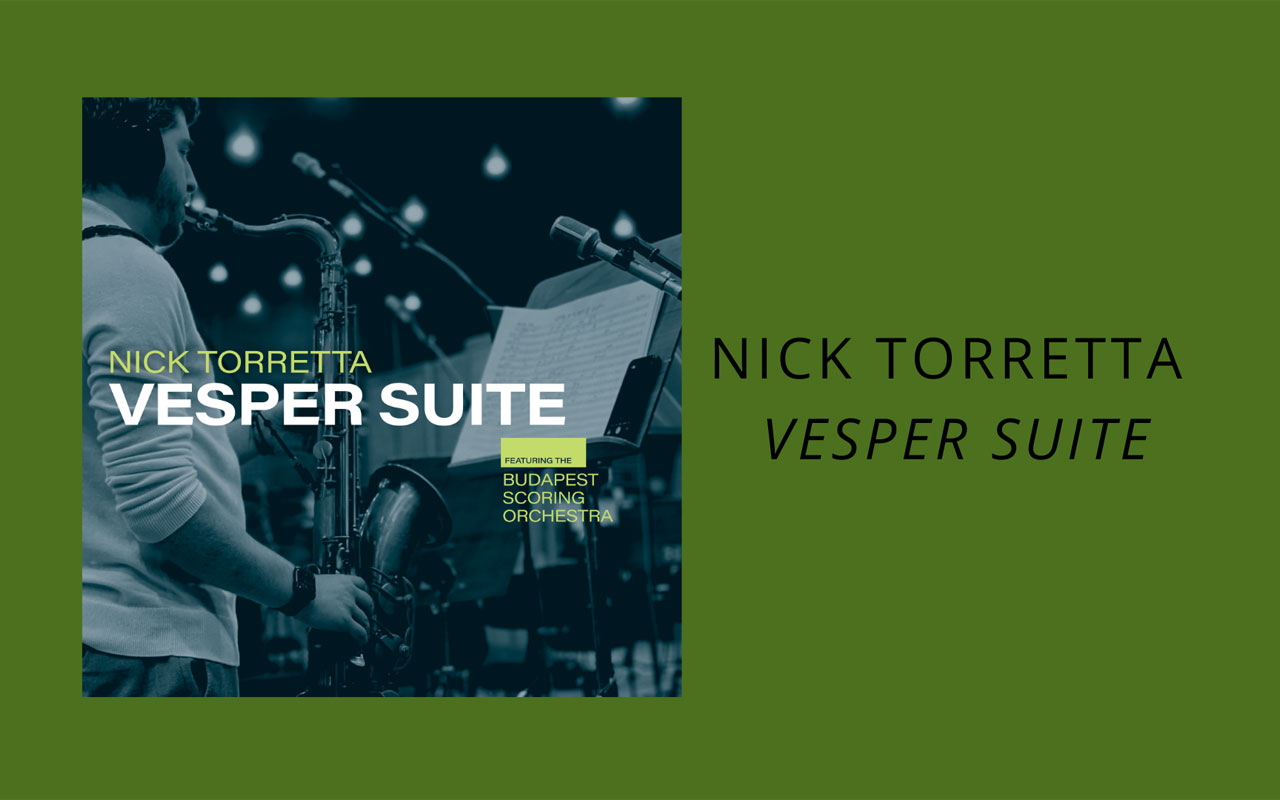
Self-released, February 2024
While the saxophone is possibly the most prominent instrument in jazz, in classical music, it gets short shrift; nearly a century on from its premiere, the brief, sultry tenor and soprano solos in Maurice Ravel’s Boléro remain the saxophone’s most widely known spotlight in an orchestral context. Even as many jazz players over the years have collaborated with string ensembles of varying sizes, most examples, from Charlie Parker with Strings and Mary Lou Williams’ Zodiac Suite to Nels Cline’s Lovers, prominently feature a rhythm section. On his 1962 album Focus, by contrast, the legendary saxophonist Stan Getz was one of the few jazz musicians to take a different tack, setting his improvisations — with the exception of a single track — to Eddie Sauter’s sensitive string arrangements without drums, piano, or guitar to ground him.
With Vesper Suite, a five-movement suite for string orchestra, woodwinds, harp, and his own tenor sax improvisations, Renton-based saxophonist and composer Nick Torretta, who shares Getz’s breathy, lyrical tone joins the great man on classical music’s turf. Recorded last fall in Hungary with the renowned Budapest Scoring Orchestra — heard in such movies as Get Out and Parasite — Vesper Suite conveys (as Torretta puts it) “…the terrible beauty of natural chaos that has formed the universe we live within, the necessity created by our world to be fluid and adaptable in order to navigate our ever-changing reality.”
By day, a composer-for-hire whose pieces for television, video games, and commercials run the gamut from chiptune-style Nintendo pastiche to a complete soundtrack for an imagined film noir, Torretta has seemingly given himself the sort of prompt an ad agency or producer might. He takes full advantage of his expanded musical palette to evoke the total weight of cosmic uncertainty; each movement is a swirl of shifting textures and tempos. Case in point: opener “Parallax” contrasts furious violin bowing and sharp stabs from the woodwinds with the darker textures of cello pizzicato, only letting up for a brief section featuring a walking bassline and some hepcat sax phrases, a cheeky nod to the jazz side of Torretta’s musical equation.
While the overall mood is intense, Torretta knows how to avoid claustrophobic clutter; transitions of emotion are often denoted by musical signals — like the harp glissando that precedes the aforementioned jazzy bit in “Parallax,” or in the way Torretta introduces a few moments of harsh woodwind dissonance with Ayler-esque growls and bleats in closing movement “Eventide.”
And while much of Vesper Suite is agitated, like any good storyteller, Torretta knows the value of a happy ending: the thorny bit in “Eventide” gives way to a searching flute and pensive strings, followed by a spritely saxophone solo that builds to a positively giddy repeated phrase — the most hopeful moments of the entire album.